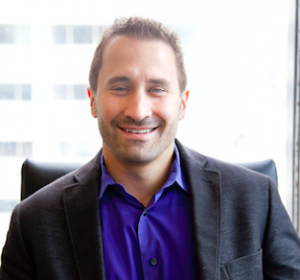Social Media Can Be Your Biggest Differentiator in a Crowded Job Market

It’s your senior year of college and you’re starting to get excited about your first real job in PR. Right now, your potential is limitless. Your ambitions know no bounds. Your career is ready to take off. You’ve got eight months until graduation. I know it’s tempting but try to avoid spending the next seven months enjoying your senior year, only to freak out in April when you don’t have a post-graduation job lined up yet.
Here’s why – every spring, I get dozens of resumes sent to me from these aspiring PR pros yet 99% of them look exactly the same. You have a GPA over 3.5. You’ve done an internship where you wrote press releases and social media posts. You’re proficient in Microsoft Office. You were the president of a club or three. At your college or university, these things may have made you stand out from the crowd but in this industry, your resume looks just like everyone else’s.
One of the easiest and most effective tactics for standing apart from the crowd is one is through your social media profiles. But not in the way that your PR professors have taught you. Your social media isn’t something that you have to hide (oh, you’re using your middle name as your last name – no one will ever find you now). Social media is a tool that you should be using more, not less. Stop looking at social media from a place of fear (“oh my god, my Facebook profile has pictures of me drinking a beer!!! Ahhhhhhhhh!”) and start looking at it from a place of opportunity (“other applicants may have more experience but how many can actually showcase their entire philosophy and beliefs to the interviewer before ever actually stepping foot in the interview room?”).
Here are four easy ways that you can use social media NOW so your resume stands out among very crowded job seekers with very similar qualifications.
- Be present. One of the first things an employer does after getting your resume is Google you. Be aware of what they will find. Of course, you don’t want those embarrassing party photos showing up on the first page but you also don’t want to have ANYTHING appear either. Get online and talk about what you do and who you are. Are you a PR specialist? Then start a blog and talk about your approach to public relations. Get on Twitter and share your thoughts on the latest PR crisis. Share links to PR articles you’re reading on Facebook. This isn’t rocket science. If you’re a graphic designer, talk about the latest trends in graphic design. Create something. Don’t tell me that you do something, show me.
- Make sure your online presence is reflective of the type of job you want. Are you trying to be an accountant? A designer? A PR specialist? A management consultant? As you might imagine, these positions require very different skills and personalities. I would expect that the online profile of someone trying to get hired by an advertising agency to be VERY different from the profile of someone trying to get hired by a government consulting firm. Blanket statements like “be your most professional you” are meaningless because they mean such different things to different people. “Professional” to a government consultant is probably going to come across as dry and boring to someone at an ad agency.
- Talk to the person/organization you’re trying to work for. The old advice was to research the company that you’re applying to so that you know what work they do, who their clients are, etc. That advice still applies but that’s the bare minimum you can do. Be prepared to do more than some simple secondary research and instead look to see who from that company is on Twitter and start following them. Connect with them on LinkedIn. Comment on their blogs. And for the love of God, talk with them about something OTHER than the fact that you want a job. You wouldn’t walk up to them in real life and hand them your resume before even introducing yourself, would you? Then don’t do it online either. Tell them how much you liked their last blog post. Answer a question they asked on Twitter. Give them your thoughts on that last link they shared on LinkedIn – just do something other than say, “Hey are you guys hiring? Check out my resume!”
- Start early. I don’t want to see that you started your Pinterest, Facebook, Twitter, and YouTube channels all on the same day two weeks ago and now you’re applying for a job with me. Start building up your online presence now, before you start looking for a job.
There’s no shortage of stories highlighting people who have been fired from jobs, lost internships or been embroiled in public controversy because of their social media posts. Don’t let those one-off stories scare you away from the positive impacts of social media. There are many more success stories of people using social media to get jobs they would never have been able to without using social media.
–

Steve Radick is a Senior Director at Burson Cohn & Wolfe, one of the largest integrated communications agencies in the world. He recently joined BCW after leading the PR department at Brunner, one of Pittsburgh’s largest advertising agencies, where he led the public relations efforts for AdWeek’s #1 Super Bowl commercial – 84 Lumber’s Super Bowl commercial, “The Journey Begins.” Prior to that, he founded the social media practice at Booz Allen Hamilton and led the PR department at Cramer-Krasselt in Chicago.
